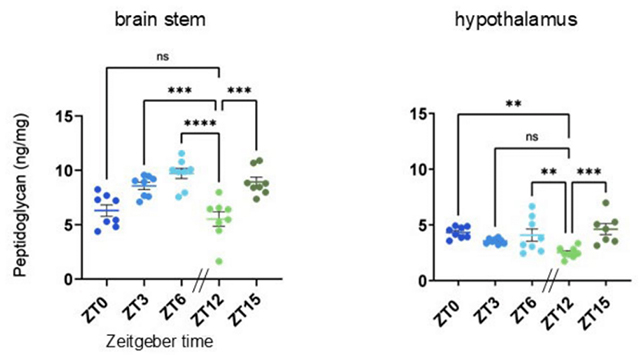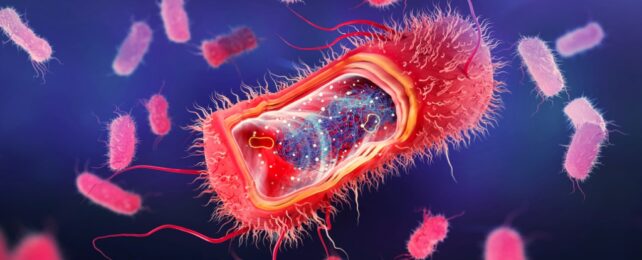Pieces of bacteria migrating from the gut to the brain may play a key role in sleep, scientists have discovered, suggesting that the oldest and most basic microorganisms in our bodies are crucial in telling us when to nod off.
These fragments are made of a chemical called peptidoglycan, which comes from bacterial cell walls in the digestive system. Previous animal studies have suggested peptidoglycan can infiltrate the central nervous system and influence behavior.
In this latest investigation, neuroscientists Erika English and James Krueger, from Washington State University (WSU), used tests on mice to establish that peptidoglycan levels in the brain change over the course of the day, and are lowest in the morning.
Related: This Rare State of Sleep Could Reveal Secrets of Consciousness
When the mice were deprived of sleep, the mix of peptidoglycan in different sections of the brain varied from typical levels. The activity of genes related to the chemical also changed.
Taken together, the patterns suggest substances pushed out by our gut bacteria could be influencing sleep, and are influenced by sleep in return. There's still a lot to explore and clarify here, but there's strong evidence of some kind of link.

"We have a whole community of microbes living within us," says Krueger. "Those microbes have a much longer evolutionary history than any mammal, bird, or insect – much longer, billions of years longer."
"We think sleep evolution began eons ago with the activity/inactivity cycle of bacteria, and the molecules that were driving that are related to the ones driving cognition today."
The results contribute to a hypothesis being tested at WSU that posits that our microbiome plays an important role in regulating sleep, along with appetite, sex drive, and other motivations.
It's being called the "holobiont condition" of sleep, the idea that both individual microbes in our body and the master control center of the brain have roles to play in telling us when we need to get some shut-eye and when we need to wake up.
"It's not one or the other, it's both," says English. "They have to work together."
"Sleep really is a process. It happens at many different speeds for different levels of cellular and tissue organization, and it comes about because of extensive coordination."
An increasing number of studies are shedding light on how the gut and the brain collaborate to maintain healthy functioning. Microbial mixes are associated with insomnia and neurodegenerative diseases, for example, demonstrating the complex interplay between these parts of the body.
Progress is also being made in understanding the different and varied factors that govern our urge to sleep and recharge at the right time, including peptidoglycan – from daylight exposure to circadian rhythms.
"Now that the world has come to appreciate how important microbes are, not just for disease but also for health, it's a very exciting time to start to expand on our understanding of how we are communicating with our microbes and how our microbes are communicating with us," says English.
The research has been published in Frontiers in Neuroscience.
